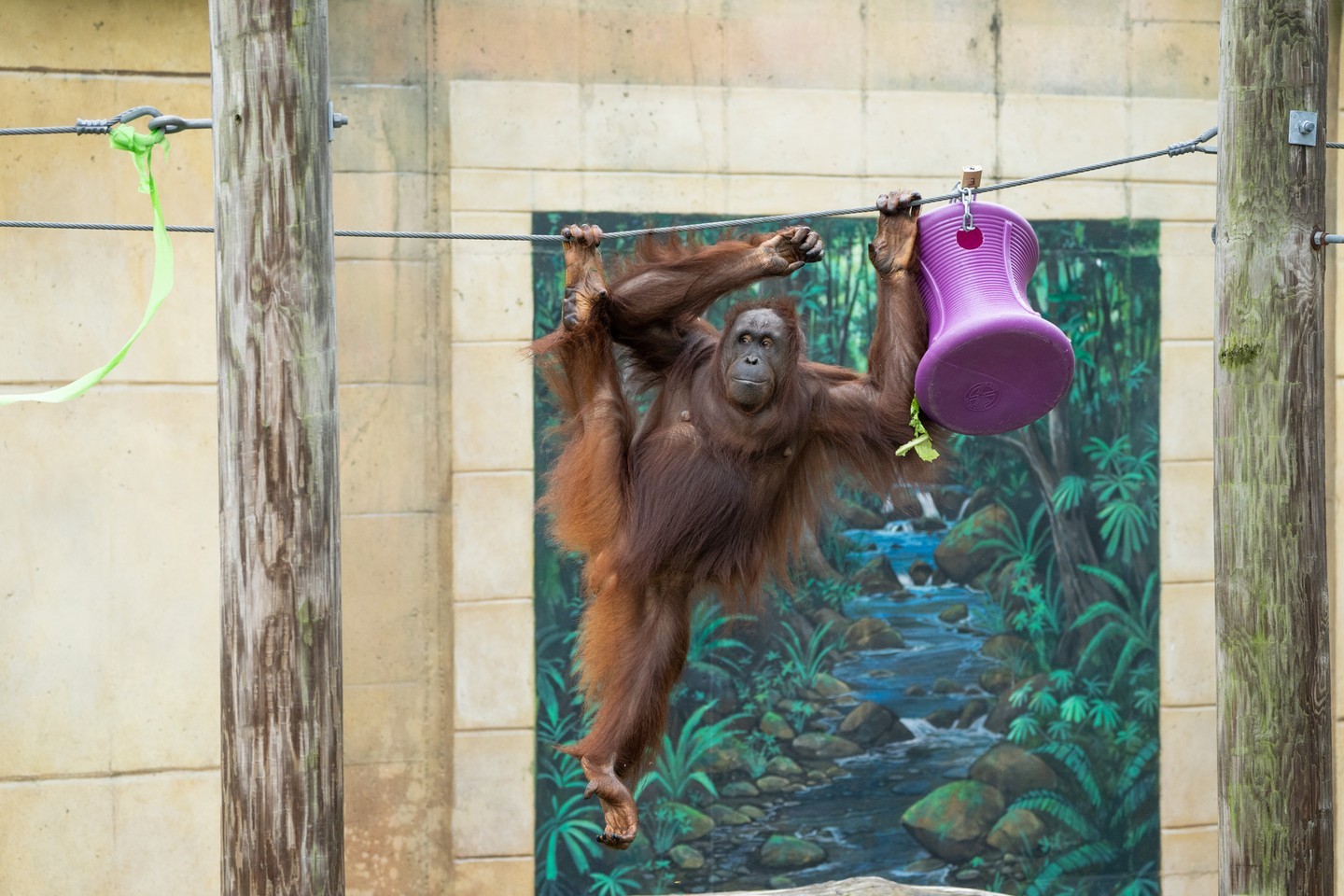The Orangutan Khali is an incredible creature with its super-flexible nature! From their quirky habits to impressive physical abilities, orangutans are a species worth admiring. In this article, we’ll take a closer look at the unique and fascinating aspects of the Orangutan Khali, showcasing how awe-inspiring these animals are in their natural habitat.
So, let’s dive right in and learn more about our orangutan friends!
1. Arboreal Wonders: Did you know that orangutans are the largest arboreal mammals on the planet? Living predominantly in trees, orangutans have adapted to life high above the ground. Their long arms, measuring 1.5 times longer than their legs, are the perfect tool for navigating the treetops. With such impressive reach, orangutans can swing effortlessly from branch to branch, displaying incredible flexibility and agility. The next time you visit our orangutan habitat, take a moment to observe their breathtaking acrobatic skills.
2. Masters of Mimicry: Orangutans are known for their exceptional intelligence and are considered one of the most intelligent primates. But it’s not just their smarts that make them stand out. Orangutans also possess an extraordinary ability to mimic human behavior. They have been observed imitating human actions such as sawing wood, using tools, and even using a saw to cut through objects. This mimicry showcases their adaptability and highlights the deep connection they can forge with their human caretakers.
3. Enchanting Personalities: Each orangutan has its distinct personality, just like humans! Some are social butterflies, while others prefer a more solitary life. This diversity adds to the charm and fascination of orangutans as we witness their quirks and preferences. From mischievous antics to gentle and nurturing behavior, orangutans captivate us with their unique personalities, making it impossible not to form a connection with these incredible creatures.
4. A Love for Solitude: Unlike other social primates like gorillas or chimpanzees, orangutans prefer a more solitary existence. This “loner” characteristic stems from their natural habitat, which mostly comprises dense rainforests. With such ample space, orangutans lead independent lives, only occasionally coming together for mating. Observing how orangutans embrace this solitude, navigating their world with grace and mastering the art of self-discovery is fascinating.
5. A Voice in the Wild: Orangutans communicate in various ways, utilizing vocalizations, facial expressions, and body language to convey their thoughts and emotions. From low groans to high-pitched calls, each vocalization carries a unique message, allowing orangutans to communicate with their fellow kin over long distances. By paying attention to their incredible vocal abilities, we can better understand the complex social structures within orangutan communities.
As we explore the world of orangutans, it’s impossible not to be mesmerized and humbled by their incredible abilities. From their awe-inspiring flexibility to their exceptional intelligence, orangutans exemplify the wonders of nature.
So, the next time you find yourself at the Zoo, visit our orangutan habitat in Australia and the Islands. Take a moment to observe these magnificent creatures in action, marvel at their surprising mimicry skills, and immerse yourself in a world where nature and wildlife come together to create something truly extraordinary.
Orangutan Khali is ape-absolutely flexible, captivating us with its unique charm, extraordinary agility, and unmistakable personality. Let’s cherish these moments and continue to learn from these remarkable creatures who call the treetops their home.
*****
Source Description
Orangutan Khali is ape-absolutely flexible! 😅
Did you know? Orangutans are the largest arboreal mammal, meaning they live in trees. Their arms are even 1.5 times longer than their legs, which helps them navigate through the trees! Visit our orangutan habitat in Australia and the Islands the next time you are at the Zoo!


